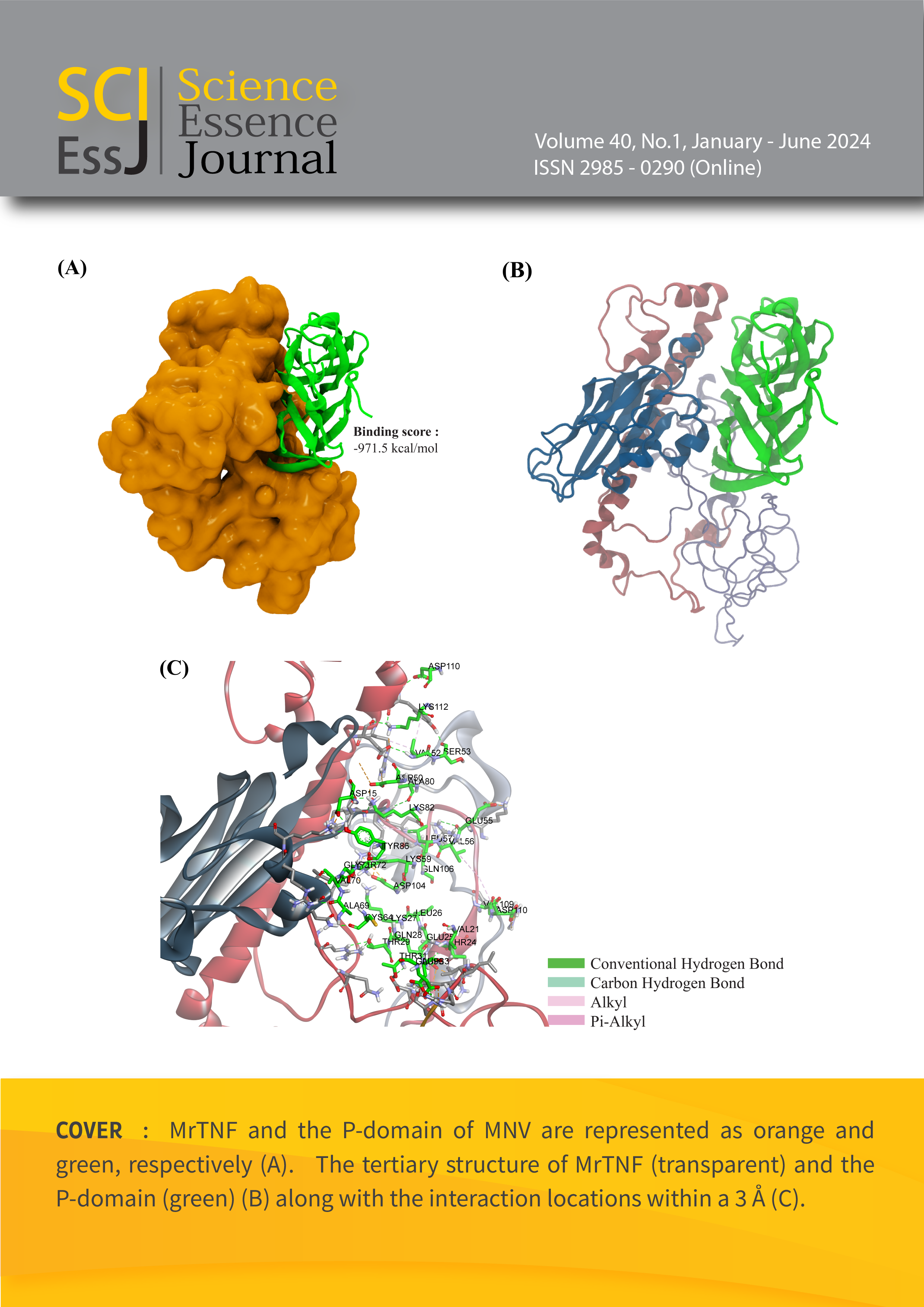Molecular cloning and tissue expression analysis of tumor necrosis factor (TNF) gene from Macrobrachium rosenbergii in response to pathogen infections
Keywords:
Macrobrachium rosenbergii, Innate immunity, Tumor necrosis factor, TNFAbstract
Tumor necrosis factor (TNF) is a cytokine that plays essential roles in various physiological pathways, including inflammation and immune responses to microbial infections. Therefore, in this study, we isolated and characterized the full-length TNF gene in Macrobrachium rosenbergii (MrTNF) and investigated the expression of MrTNF against Aeromonas hydrophila and Macrobrachium rosenbergii nodavirus (MrNV) infections. The full-length cDNA of MrTNF had 1830 base pairs (bp), consisting of a 5’ untranslated region (5’-UTR) of 396 bp and a 3’-UTR of 54 bp. MrTNF contained an open reading frame (ORF) of 1380 bp, encoding 459 amino acid residues. The structural analysis of MrTNF revealed a transmembrane domain from positions 21 to 43 and a conserved TNF domain from positions 324 to 446. The MrTNF protein exhibited a high identity of 91.88% compared with MnTNF from Macrobrachium nipponense. The phylogenetic tree analysis revealed that MrTNF was closely related to MnTNF from M. nipponense. The expression level of MrTNF mRNA in healthy prawns exhibited high expression in the intestine, muscle, and stomach. MrTNF was significantly up-regulated in hemocytes, muscle, intestine, and stomach upon A. hydrophila infection. Furthermore, MrTNF in muscle, gills, and hepatopancreas was significantly up-regulated upon MrNV challenge. Molecular docking study indicated that MrTNF may interact with the protruding (P)-domain of MrNV triggering a response in the innate immune system of prawns after viral infection. These findings suggest that MrTNF plays a crucial role in the innate immune system of freshwater crustaceans, particularly in response to Gram-negative bacteria and viral infections.Downloads
Download data is not yet available.
Downloads
Published
2024-05-15
How to Cite
Suksangiamkul, P., Choolert, C., Ngueanngam, N., Pasookhush, P., Vaniksampanna, A., Longyant, S., & Chaivisuthangkura, P. (2024). Molecular cloning and tissue expression analysis of tumor necrosis factor (TNF) gene from Macrobrachium rosenbergii in response to pathogen infections. Science Essence Journal, 40(1), 37–60. Retrieved from https://ejournals.swu.ac.th/index.php/sej/article/view/16071
Issue
Section
Research Article








